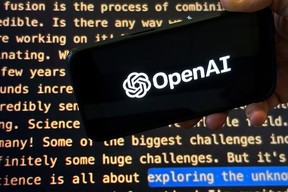Article content

Article content
Boujelbene said Celestica is likely to retain its position as a hardware supplier of choice. Its position as a preferred vendor for Google LLC and Amazon, which were the first to adopt ethernet in AI back-end networks, is “working in its favour,” she said.
Article content
The rapid pace of hardware advancement is set to benefit the company. For example, as AI workloads continue to grow, data centre operators need higher-speed ethernet switches. Many adopted 800 Gbps switches this year and will soon transition to 1,600 Gbps.
Article content
The equipment from switches to servers are moving “from one generation to the next very quickly … plays to Celestica’s strength as a supplier of complex, customized hardware,” Moschopoulos said. “It makes it challenging for competitors to catch up.”
Article content
The rising fortunes of other companies in the AI supply chain could also bear fruit for Celestica. Broadcom Inc., a California-based maker of semiconductor and data centre products, recently inked a US$10-billion order for AI infrastructure with OpenAI. Celestica’s server and switch business is largely based on Broadcom’s silicon, meaning the Canadian company will be the key supplier to OpenAI for Broadcom-based servers and racks, Moschopoulos said.
Article content
Article content
While OpenAI’s plans could change or the AI giant could tap other suppliers, Moschopoulos said Celestica will likely snag a “meaningful portion of that opportunity” in the ballpark of “a few billion dollars of OpenAI revenue in 2027.”
Article content
Boom and bust
Article content
Celestica’s podium standing could be threatened, however, if its handful of major clients diversify and tap other vendors, Boujelbene said, though she added that seems unlikely in the near future.
Article content
According to TD Securities’ Chan, “Companies like to diversify their supply chains to manage operational risk and create competition for price.”
Article content
Celestica could “get a piece of” OpenAI’s recent multibillion-dollar deal with chipmaker Advanced Micro Devices Inc., which will give Sam Altman’s company six additional gigawatts of power via hundreds of thousands of AMD’s AI chips, Chan said.
Article content
But “if Celestica is already a major supplier on an existing program, we could see OpenAI bringing other suppliers into the mix,” he added.
Article content
Still, Big Tech’s supplier diversification is viewed as a relatively small risk for the company.
Article content
Article content
“Hyperscalers need multiple suppliers right now, so Celestica is in good shape while demand is good,” Birkinshaw said.
Article content
The bigger hazard, experts say, is a downturn in AI spending.
Article content
“When the AI service providers stop spending, the risk spreads to the supply chain, with the demand for Celestica’s products dropping quickly,” Birkinshaw said.
Article content
Analysts view that risk as unlikely to play out in the near term.
Article content
“We are in the early stages of what could be a multi-year investment cycle with long-term commitments,” Chan said.
Article content
But even in the event of an AI spending slump, demand for Celestica’s AI hardware “won’t go to zero,” he said, adding that the company has other business lines to fall back on.
Article content
Moschopoulos agreed, pointing out that Celestica’s business is “more wedded to data centre spend … but they have other parts of the business they could lean on more heavily.
Article content
“If you’re Google, Meta, Amazon or OpenAI, and you’re looking for suppliers, it’s not … dozens of companies that can do this. It’s only a handful that have the global scale and capability to be a credible supplier to these companies.”
Article content
Article content

.jpg) 13 hours ago
3
13 hours ago
3
 English (US)
English (US)